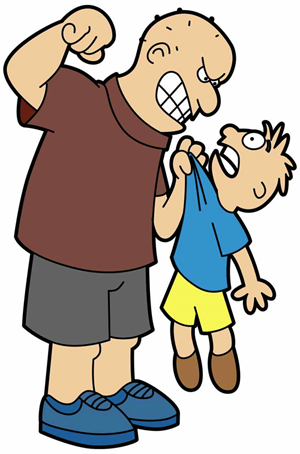 What makes a person become a bully? The news is full of tragic stories about people being bullied. These horrific stories appall us and make us wonder what happens in a person’s life that causes him or her to be mean and cruel, to want to tease, belittle or even physically hurt another human being. Maybe if we understand what’s going on behind this aggression, we can understand how to respond to it.
What makes a person become a bully? The news is full of tragic stories about people being bullied. These horrific stories appall us and make us wonder what happens in a person’s life that causes him or her to be mean and cruel, to want to tease, belittle or even physically hurt another human being. Maybe if we understand what’s going on behind this aggression, we can understand how to respond to it.
Bullies do not simply decide one day that they are going to be mean. The traits that make them the bullies they become have probably been forming since early childhood. A child’s actions often reflect how he or she has been treated—by caregivers, older siblings, neighbors, relatives, or strangers. And often, the way a child is disciplined by parents can have a powerful impact on whether or not the child eventually engages in bullying behavior.
When a child is punished by an adult with anger, sarcasm or physical hurt, he feels little and helpless, victimized. Eventually, all the hitting, yelling and threatening make him angry. There is little relief from this kind of feeling when the child is small and the adult is so much bigger, so the fury may just lie there, fester and grow. In time, that anger turns into the desire to retaliate and hurt others. If a young child has continually experienced violent, negative, unloving treatment, he cannot feel valued or loved. If he has not been helped to figure out what went wrong, and taught that he did not deserve this kind of punishment, it becomes the only reality he knows. Eventually, he may identify with what was done to him and use the same behavior in order to feel bigger, in control, and to feel like “somebody who counts.”
That young child who was bullied wants to feel the power that makes others feel weak so that he can feel big and in charge. In a misguided way, this feeling of power leads him to a false sense of being looked up to, even admired — especially when there are onlookers who stand back and do nothing. Or even worse, become his followers.
Sometimes those who are witnessing an episode of bullying get caught up in the excitement it stimulates. They can even lose the sense-of-self which would ordinarily empathize with the child who is the bully’s victim. They become part of the “herd” which follows instead of using their better judgment. There may be elements of fear involved, too -– fear that the bully may turn on them if they defend the victim or criticize the aggressor.
And so with time, the victim becomes the aggressor and the cycle continues. How can you stop it?
By catching the bully unaware. By taking power back.
Instead of cowering, give the bully what he lacks. Compassion and understanding. It worked for me, once. When I understood that the boy who was bullying me was just as scared of someone else, I said something like, “I’m sorry someone has made you feel small. I hope you find the love you lack.” Instantly, the boy’s expression changed. His eyes got huge and he lowered his guard. Eventually, he walked away and never bothered me again.
To all the bullies out there, I invite you to share what’s going on inside. No one deserves to be torn down.
Bullies are victims, too..










